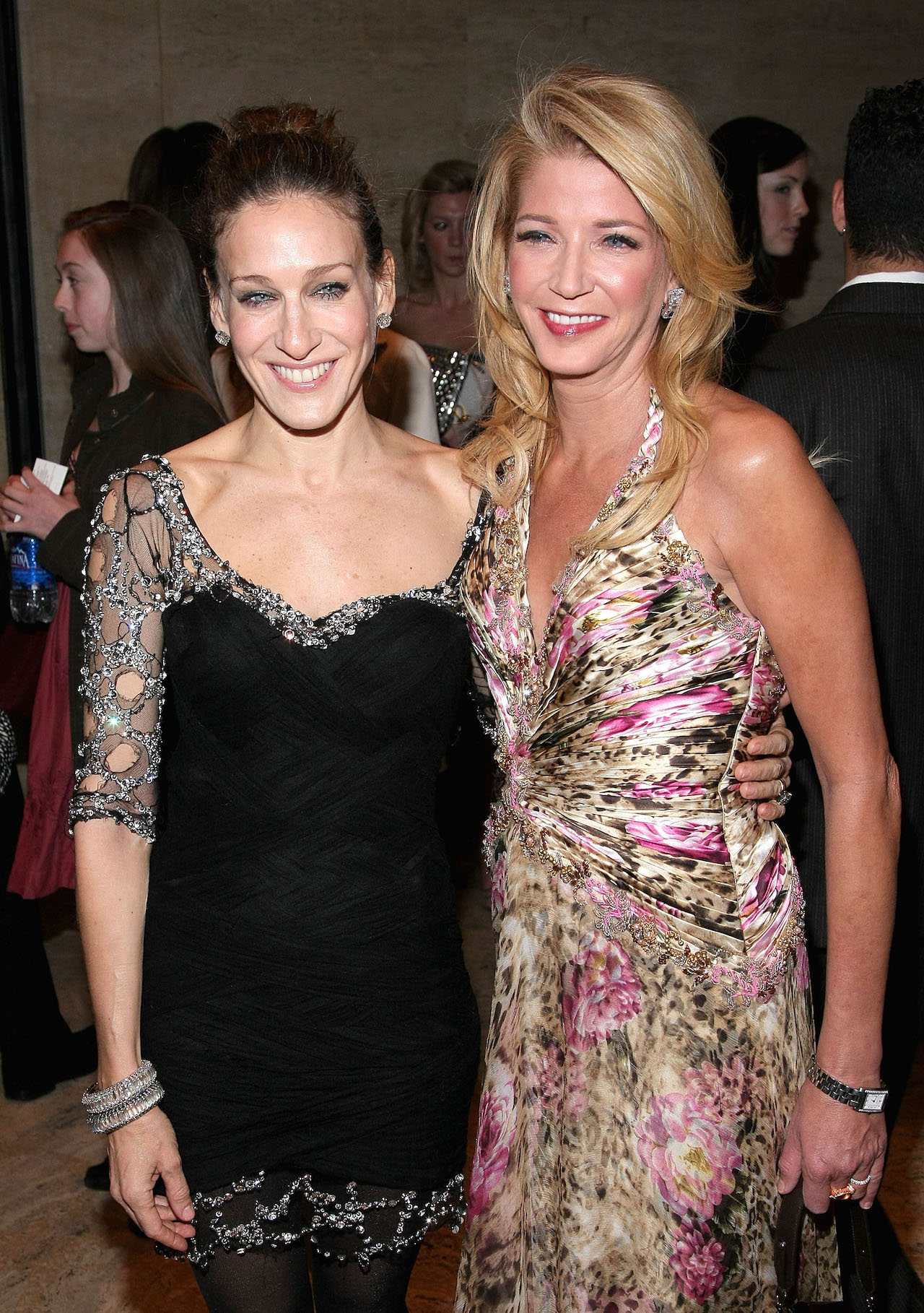

“Sex and the City” began as a newspaper column by Candace Bushnell, an insider’s view on the dating and mating habits of thirty-somethings in the Big Apple. (She created Carrie Bradshaw as her alter ego so her conservative parents wouldn’t read about her sex life.) In 1996, Candace’s columns were published as the book Sex and the City, and that’s when Beverly Hills, 90210 and Melrose Place executive producer Darren Star came knocking. On June 6, 1998, HBO aired the pilot.
Your latest book, Is There Still Sex in the City?, just came out. What’s it about?
It’s about dating again after not dating for a while. So many of my friends were all of a sudden single. You get married, you have kids, you kind of do it all right, but then something happens … for half the people it doesn’t work out. A lot of women who get divorced are in their 50s, and they’re trying to find who they are again, not in the context of marriage and kids. Things get shaken up and everything’s up for grabs, and the book is about navigating that passage.
How is dating after divorce?
After I got divorced, everyone is like, “Oh you’re going to start dating again in six months.” Well, you do that, and it’s a nightmare! You’ll make every rookie mistake because you probably haven’t dated in 15 or 20 years. You haven’t had to think about taking your clothes off in front of a stranger, and now you do. It’s terrible!
How do you think the dating landscape has changed for better or for worse since the advent of Tinder and other dating apps?
I wrote a Tinder story in the book and I found it depressing. Because people do see that there’s a commodification of the person and that just feels like it’s bad for the soul, you know? We’re more than the boxes that we tick off, and people find it frustrating to live in that space. Now do people have great success with online things? Yes, they do, but it also seems to be very demoralizing.
What have you found to be the most successful way to meet men?
The old-fashioned way, through friends. And one of the advantages that people have of being this age is that they know how to do analog dating. They did it really, really well in the ’80s, before technology, when people picked up the phone, when they knew how to do that human connection thing. Most of them know how to go on a date and have a conversation.
How involved were you with adapting Sex and the City for the TV series?
For the pilot, which was done a year before the series came out, I read all the scripts, I went to some castings and went to all the sets. It was very exciting. They asked, “What do you think of Sarah Jessica Parker?” and I said I think she’s great. Darren [Star] says great, we’re going to go and meet her. So Darren and I went to see Sarah Jessica Parker in Once Upon a Mattress on Broadway. We went backstage and she was so cute. And we went and had a cosmo!
Was this your first foray into television?
Interestingly, at the same time I had a show on VH1 called Sex, Success and Sensibility that was adapted from my columns. It was me and this other guy. We’d go report on polygamist couples and even went to a sex dungeon! It was weird, but interesting and fun. I just thought, “This is so cool. I have two TV shows coming on!” They were so super small at that point, but it was a great moment for me.
Did you get to participate on set?
I got yelled at for being a backseat director. I didn’t know that kind of thing could happen, but it can! I think Darren got yelled at too and then we both had to stand by the sound person. We did have a good time. I was there for every single scene they shot in the pilot. We were in Soho at six in the morning for the scene where Carrie comes out of the nightclub and sees Big in his car.
How similar was your experience with your own Mr. Big?
“Absof**kinglutely” is directly what my Mr. Big said to me. Darren was really smart to pick that conversation out of the book. It’s kind of a turning point for Carrie’s life, like, whoa, she’s never been in love and she’s like, “F**k, what does that mean?”
How close were the episodes to your real life?
There are a lot of moments, but of course they were a little different. A lot of the first two seasons came from the book and directly from my life. Like “Valley of the Twenty-something Guys,” where Carrie’s staying at a younger guy’s apartment and there’s no toilet paper and then he comes down and talks about his crazy dream. That came from this guy who I interviewed for the column, who dreamed about having huge hands and being in an elevator called the Killavator. It was hilarious. I would just look at some of these guys and think, “You are so nutso.”







